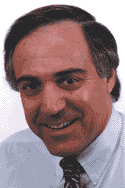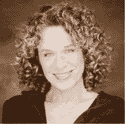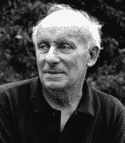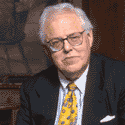Comment on this article
Faces
Summer 2003
The wait list to see Carole King in Davenport College on April 24 was 50 people long, but those lucky enough to make the cut had an unforgettable afternoon of spirited conversation with a legend in the music industry. King’s visit was sponsored by the Yale Undergraduates' Distinguished Speakers Series. The author of more than 400 songs, including 40 Top 40 hits, King discussed her musical past and her present endeavors—which include running her own record label, Rockingale Records, and working to preserve the Northern Rockies, which she calls “our Sistine Chapel, our Louvre.” But the highlight was when she sat down at the piano and invited the crowd to gather round, and a chorus of both sexes helped her belt out “Natural Woman.”
 |
|
“A press conference with the Secretary of Defense shouldn’t be a joyous banter with his friends,” said journalist Roger Cohn '73, engaging in just that at a Calhoun College master’s tea on April 15. The editor-in-chief of the independent news journal Mother Jones cited other troubling trends of mainstream reporting, among them television’s “rah-rah coverage” of the war in Iraq. Cohn advocated “asking tough questions and pointing out inconsistencies and raising issues,” citing his magazine’s recent story on private military companies playing an increasing role in the war on terrorism.
On April 21, the world’s most successful writer showed up in jeans and a tie-dyed T-shirt for a Berkeley College master’s tea. Stephen King talked about the origins of books like Running Man, which he wrote over February vacation while working as a high school teacher in Maine, and The Shining, which he conceived during an off-season stay at a hotel in Colorado. King said the obsessive writing he did in his 20s and 30s was like “lancing a boil,” and compared the stuff of his horror fiction to “infected matter that has to be let out to ensure the health of the organism.” Later in the evening, he read from his forthcoming book Wolves of the Calla.

In Memoriam
Two professors who touched the lives of Yale College students—as teachers and as college masters—died within days of each other in April.
English professor Richard Sewall, who died on April 16 at the age of 95, was the embodiment of Yale’s commitment to its undergraduates. Sewall earned his PhD at Yale in 1933 and returned as a professor in 1934. He soon gained a reputation as a sensitive and involved teacher, winning tenure despite his lack of publications. The eminent Yale professor Chauncey Brewster Tinker is said to have opined that “Sewall’s someday going to write a great book, if only he can get rid of his undergraduates.”
As it happened, Sewall kept the undergraduates and wrote the great book—a biography of Emily Dickinson that won the National Book Award in 1974—although it took him 20 years to do it. In the meantime, he also spent the years 1959 to 1970 as the founding master of Ezra Stiles, helping to shape the new college’s character.
“He had tremendous respect for students and cared for each of them,” says former Stiles master Traugott Lawler, “and he created a community where people are kind to each other.”
Robin Winks, the Randolph W. Townsend Jr. Professor of History, died on April 7. His primary scholarly work was in the history of the British Empire, but he was known for his remarkably varied interests. He was an authority on detective and espionage novels, writing his own under an as-yet unrevealed pseudonym. His 1987 book Cloak and Gown detailed the links between real American spies and Ivy League universities. Winks was also an advocate of America’s national park system, and in 1998, he reached his goal of visiting every site in the system (376 at the time).
“What did he not write about?” wonders his history colleague Paul Kennedy. “He was a great scholar and a great mensch.”
Winks, too, was an enthusiastic teacher and master (of Berkeley College from 1977 to 1991), and at Commencement he was honored posthumously with a Yale College teaching prize named for Richard Sewall. The citation reads, in part: “We remember Robin Winks today for his dedication to undergraduate teaching, his championing of the preservation of the natural environment, and his gifts as a writer and orator … In all that he accomplished, Robin Winks was truly a master.”  |






